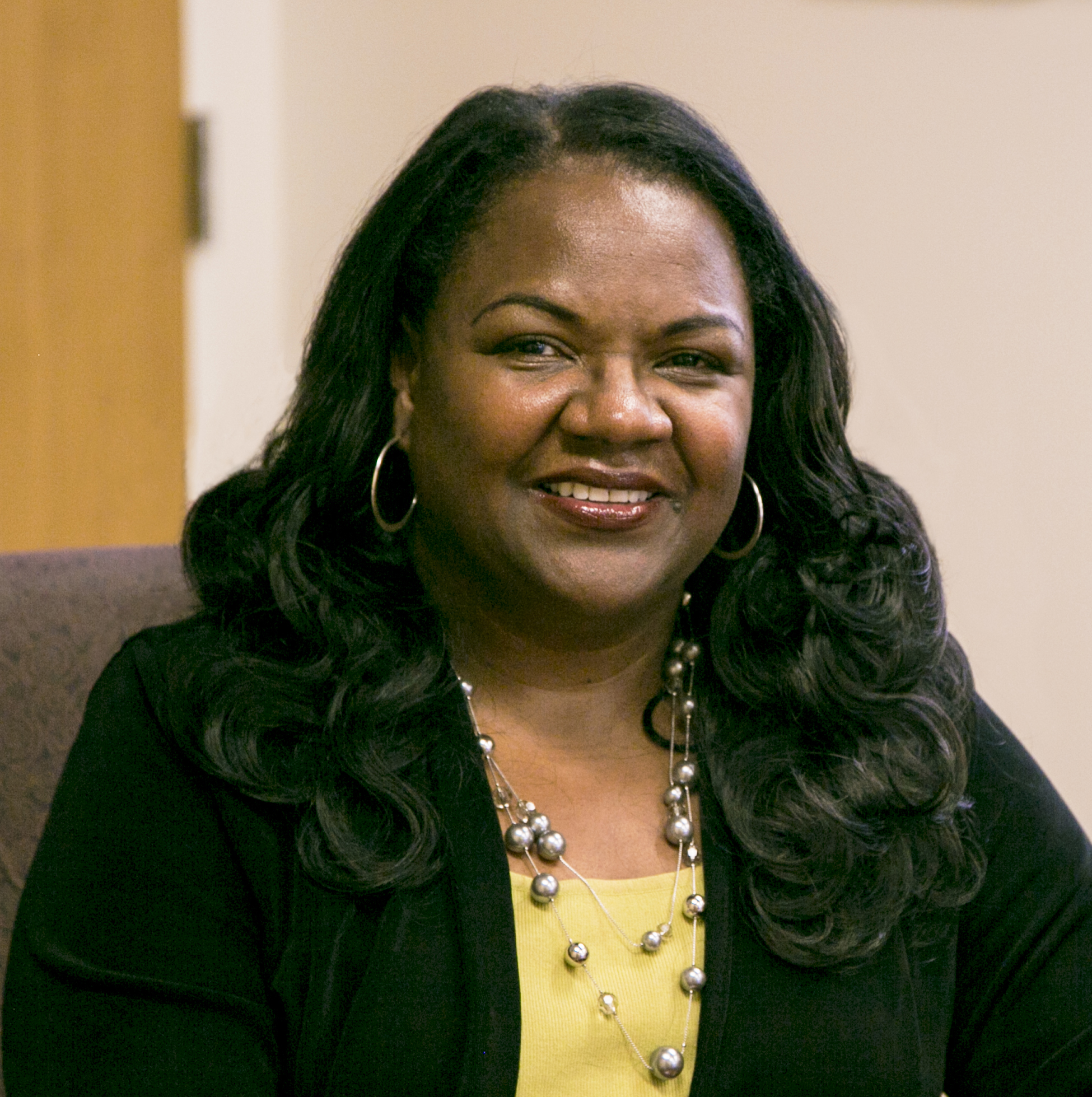When Colleges Get It Right, Students Succeed
Written by Regina Stanback Stroud, Skyline CollegeEducation is a critical way for people to change the conditions of their lives — and those of future generations. Now, more than ever, colleges should support students in increasing their financial well-being. Why? Because in the United States, one of the biggest factors hindering student success is poverty. Students’ access to higher education, their ability to complete degrees and certificates, and for community college students, their likelihood of transferring to a baccalaureate-granting institution can often be predicted by socioeconomic status. The Pell Institute’s recent report, “Indicators of Higher Education Equity in the United States,” documents how family income has over the past 45 years increasingly been a predictor of bachelor’s degree attainment. Yet most education reforms and interventions are designed to address student academic deficiencies, ignoring the major barrier to success that poverty presents.
An example of this mismatch falls close to home in my state, California. On the basis of recommendations from a system wide task force, California recently passed legislation to establish “Student Success and Support Programming” with the goal of improving student outcomes in the state’s community colleges. The regulations tie college funding to the implementation of supports to help students commit to attending college full-time, develop student education plans, and provide placement testing early in students’ educational careers. These well-intentioned reforms address some dimensions of student success, but they do not address the issue of poverty and its impact on student success, much less codify that acknowledgment in the state’s recommendations, regulations, or funding incentives.
This is the kind of missed opportunity that I hope and believe other states and educational institutions will address in the years to come. As the president of Skyline College, a community college just south of San Francisco, I have launched a set of strategies to improve our students’ financial well-being. Although San Mateo County is quite affluent, we serve pockets of poverty where some people work four minimum wage jobs to make ends meet. I am driven by the fact that more than 30 percent of the families in the greater Bay Area live below self-sustaining wages. This means more than 650,000 families do not make enough to make ends meet.1 I am also driven by the fact that faculty members report instances of students coming to class hungry, without shelter, or drinking warm water so they could save their food for their children. I believe that our public institutions should be a vehicle for people to gain access to information that can increase their financial capability — and not one in which staff feel the need to purchase food for hungry students. This experience has persuaded me that strategies to address financial well-being are not just a nice idea; they are an essential component of helping students reach their academic goals.
Although colleges have not typically focused on strengthening the financial capability of their students, such strategies are consistent with the stated missions of many colleges, such as life transformation, upward mobility, preparation for full civic engagement, or participation in and contribution to society at large. It is certainly important to recognize that some financial capability services are not typically colleges’ areas of expertise, but those challenges are surmountable if we bring the right partners to the table. At Skyline College, we have demonstrated that strategies that promote financial well-being can successfully be incorporated into the typical operations of an institution of higher education, and that doing so contributes to student success.
The Bundled Services Approach
There are many models for integrating financial capability services into diverse delivery channels. As outlined in Michael Rubinger’s essay in this volume, one of the best-known is the Annie E. Casey Foundation’s Center for Working Families (CWF) model. This model bundles three core services in a single, convenient location, including: 1) workforce and career services to promote stable employment and advancement opportunities; 2) income support services to help low-wage workers access public benefits such as the Earned Income Tax Credit; and 3) financial services, including financial coaching and education.
In the San Francisco region, the United Way of the Bay Area (UWBA) has built on the CWF model and opened a dozen one-stop “SparkPoint Centers” that provide core services similar to those in the CWF model. The services are enhanced by partnerships that connect participants to additional services, financial education, and asset-building tools. At Skyline College, we partnered with the UWBA to establish our own SparkPoint Center on campus for students and other members of the community.
Many Services = Many Partnerships
We quickly recognized that we could not do it all ourselves and expanded partnerships with other organizations that specialize in areas where we needed more expertise. Today, thanks to these collaborations, Skyline College’s SparkPoint Center provides a wide range of services, such as:
- Financial coaching: Although any student who receives financial aid must complete financial literacy training, this is usually accomplished by clicking through a presentation on the federal government’s student aid website — not what we consider a robust, in-depth financial education opportunity. By comparison, typical SparkPoint Center clients receive individualized financial coaching, financial education, debt reduction assistance and credit repair. The SparkPoint Center collaborated across the college to provide training in financial coaching for financial aid staff and other faculty and staff throughout the college (for more on financial coaching, see Michael Collins’ essay in this book). We also hired a counselor to lead the financial coaching component of the SparkPoint Center services.
- Access to affordable financial services: In addition, Skyline College partnered with financial education providers, banks, and credit unions to offer participants broader access to financial information and services, including an opportunity to open bank accounts such as a “new start” account for those who have experienced banking difficulties in the past. Participants can also sign up for a free, prepaid debit card with direct deposit; they can link the card to a high-yield savings account, transfer money between accounts without charge, share money with family or friends, pay bills online, get cash without ATM charges, keep track of their balances, and review transactions.
- Tax preparation: Free tax preparation assistance is available to students through the Volunteer Income Tax Assistance site hosted by the SparkPoint Center and faculty and students of the college’s accounting program. In 2014 alone, our SparkPoint Center generated tax returns totaling $357,911 for our students and other community members.
- Employment assistance: Our on-campus career and employment services are enhanced through our partnership with the California Employment Development Department (EDD). We co-located an EDD office at our campus Career Services so community members and students could easily access unemployment benefits and employment services, including resume-writing assistance, job search workshops, interview training, and other supports.
Don’t Leave Money on the Table
Colleges can also support students in achieving their educational goals by connecting them to public benefits. In many cases, benefits that would make a difference in low-income students’ lives and in their ability to pursue their education go unclaimed. Juggling multiple demands, students often fail to connect with the proper agencies or navigate bureaucratic processes to acquire the benefits to which they are entitled. Many colleges are in a position to facilitate these much-needed connections and are beginning to do so.
Skyline College was one of six community colleges across the United States that participated in the Benefits Access for College Completion (BACC) project, a three-year initiative that investigated innovative ways to connect low-income students to public benefits. Skyline College collaborated with the San Francisco and San Mateo County Human Services Agencies to train Skyline College Sparkpoint Center staff to work with participants navigating the Supplemental Nutrition Assistance Program (SNAP). The initiative also helped students connect to cash and health insurance benefits through MyBenefitsCalWin.org — a user-friendly portal to the online application for cash assistance (CalWORKs), food assistance (CalFresh), and health insurance (Medi-Cal). Although the BACC project ended in 2014, we have now institutionalized the initiative and continue helping students make these connections to the public benefits they should receive.
It Works
As a shepherd of this strategy, I was confronted with the question of mission creep. Some asked if we were an education institution or a social services agency. It clearly was not enough to articulate the connection between poverty and student success. To continue this initiative beyond a pilot phase, it was important to know that the data substantiated that the approach worked.
One measure of student progress toward earning credentials is persistence, that is, whether a student remains actively enrolled during the academic year. In 2013–14, the college-wide rate for fall-to-spring persistence was just under 55 percent, while 87 percent of SparkPoint participants who used one financial capability service persisted, 90 percent who used two services persisted, and 93 percent of those who used three services remained actively enrolled (Figure 1). Chad Thompson, Skyline College’s director of SparkPoint, notes that although we cannot substantiate a causal relationship, “these preliminary data are so promising that we will continue to gather data to better explain the outstanding results we have begun to see among the students we serve.”
Leadership Matters
To support the financial well-being of students is to support overall student retention and success. At Skyline College, we believe that the SparkPoint Center is both a physical location and a retention strategy. Any door that a student or community member walks through at Skyline College is likely to lead them to the SparkPoint Center if they can benefit from the services.
And yet it is not simple work to reconceptualize traditional student services, redefine the mission, and change the culture of an institution. It means disrupting the status quo. It simultaneously takes courage and humility. College leaders are in positions of influence and consequence. We have the opportunity to call on our relationships and credibility with the faculty, staff, community, policymakers, and governing boards to bring the full resources of the college to bear on supporting student success. That means including the issue of poverty as an important barrier to student success. It means including financial well-being strategies in all aspects of the institution, including the planning and budgeting processes, grant writing strategies, educational and facilities master planning, curriculum processes, faculty and staff development, strategic priorities, institutional goal-setting, and accountability systems.
I am proud to have begun this journey at Skyline College and am eager to see my colleagues at other institutions of learning do the same. Together, we can help our students achieve success in college and beyond.
NOTES
- United Way of the Bay Area, “Struggling to Make Ends Meet on Minimum Wage.” Self-Sufficiency Brief, October 2014.




